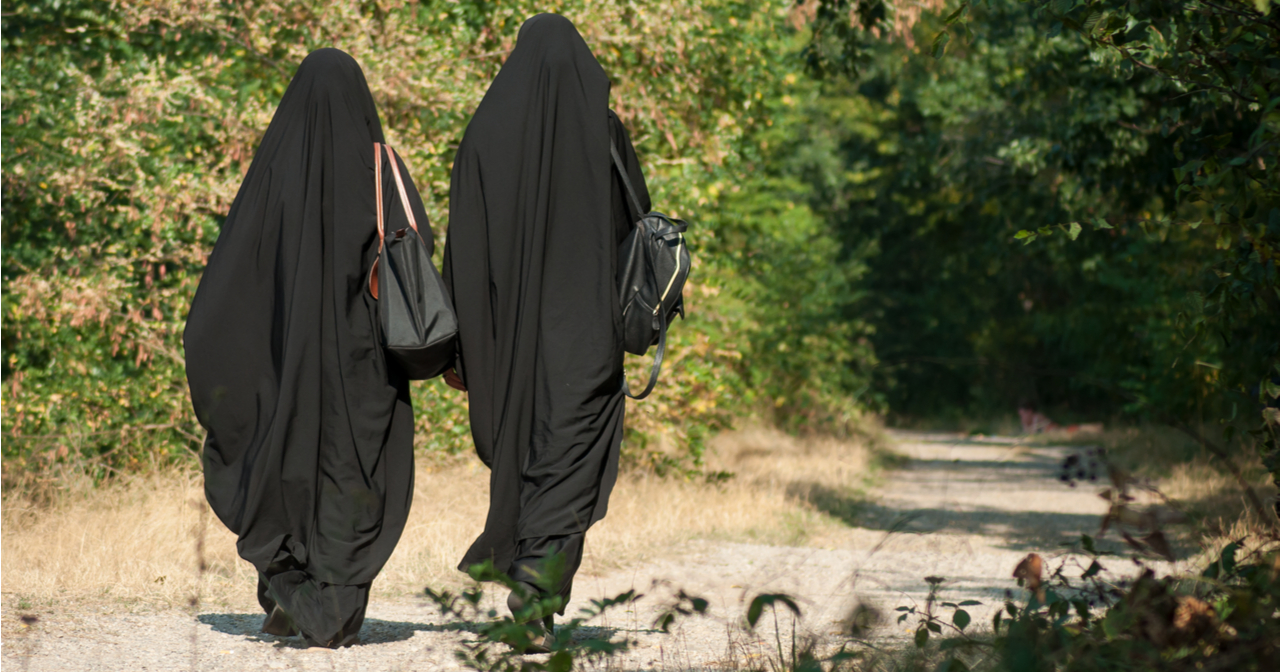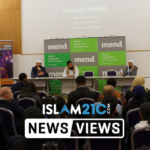Lately, the Indonesian people have been shocked by debates on the prohibition of wearing veils and trousers above the ankles for the Civil Service (ASN). The discourse on the prohibition was brought up by the recently elected Minister of Religious Affairs, Fachrul Razi. Razi based his proposal on security reasons, responding to the stabbing of Wiranto, the former Coordinating Minister for Political, Legal and Security Affairs. He further asserted that the proposal would only apply to the ASN, as reported by katadata.co.id. In a statement, Razi said:
“We do not forbid niqab (veil), but forbid entering government agencies with it.”
Aware that his opinion became viral in various media platforms in Indonesia, Razi apologised through detik.com for the polemic that arose from the statement he made. Razi admitted that he deliberately proposed a regulation related to a ban on the use of veils and trousers. Razi clarified that he wanted to test the water among the people of Indonesia, so that when the regulation is actually implemented, the public would no longer be surprised by it.
Razi asserted that his statement related to the ban on wearing veils and trousers above the ankle was only a proposed regulation that he addressed to various government agencies and institutions. Whether the proposal was accepted or not would be determined by the various government agencies and institutions.
Responding to Razi’s proposal, the Minister of Administrative and Bureaucratic Reform (PAN-RB) Tjahjo Kumolo said that his party did not want to interfere with the ASN dress code, and that he fully submitted the matter to each government agency.
Regulations related to the prohibition on the use of veils and trousers proposed by Razi to various government agencies and institutions do not have a strong foundation.
In general, he bases his proposal on security reasons alone as a form of response to the stabbing that befell the former minister Wiranto. Indirectly, Razi has concluded that the person who stabbed Wiranto was part of a community that wore a veil and trousers above the ankles.
In addition, the security reasons echoed by Razi in issuing the regulation seemed to assume that all people who wear veils and frayed trousers are criminals or extremist radicals. The reasons underlying Razi’s proposed rule are a form of fallacious thinking, in which he generalises and draws a false conclusion from an existing problem.
Based on the explanation above, it can be said that the rules proposed by Razi are based only on subjectivity looking at people who wear veils and trousers above the ankles. This is contrary to the concept of democracy, which should include the community in making decisions related to regulations.
In this regard, Razi should hold a public consultation on the matter and filter the opinions and responses from consultation before pursuing the regulation.
In an article titled “Democracy: Key Principles, Institutions and Problems,” Professor David Beetham argues that the basic principle of democracy is that people have the right to control the influence of public policies issued by policy makers, and that the decision must be in favor of the community. By proposing his regulation, Razi violated the democratic principle of freedom of expression.
As an official serving in a country that adopts a democratic system, Razi should understand the essence of democracy itself. Things he has done that are contrary to democracy, such as unilateral decision-making, should not happen. Unfortunately, the action taken by Razi shows his lack of understanding of the concepts and values of the democratic system itself. He should immediately revoke the proposal before his good name as a public official is smeared in the eyes of the people of Indonesia.
[donationbanner]
Source: www.islam21c.com
Notes:
This article was co-authored with Ahmad Turmudzi, a student majoring International Relations at Universitas Islam Indonesia.










I think that the issue is not just about Indonesia but is part of an increasing global, concerted effort to demonise ‘wahabi’ (salafi) Islam. The article clearly shows that the problem is not just with the face veil and security but also with men who wear their trousers above their ankles.
Since 9/11, we know that here in Britain the (Saudi) salafis have been used to speak out against jihadist (salafis) but over the years there has been a lot of talk in the West about how these same (Saudi) salafis are themselves extremists. The West have for a while now felt that wahabism leads to extremism, extremism leads to radicalisation and radicalisation leads to Muslims finding themselves on battlefields. They prefer a more Sufi interpretation of Islam that is more tolerant of sects like the Shi’a, mixing between the genders, music and that has a generally more pacifist mentality.
We can see this concerted effort to demonise Wahabi Islam from Yasir Qadhi’s recent, extremely controversial remarks regarding Muhammad ibn Abd al-Wahhab which were, “I am saying that what this individual did in waging jihad and considering the rest of the ummah to be kaafir is essentially what ISIS is doing in our time, it’s the same mentality of everybody’s a kaafir unless it’s us…” Here, we can see that Yasir Qadhi is also making a link between Wahabi Islam and ISIS.
Also, The Saudi Arabian leadership have over many decades helped the spread of Wahabi Islam, probably as a way of appeasing their religious citizens so that there wouldn’t be a repeat of ‘The Grand Mosque seizure that occurred during November and December 1979 when armed civilians calling for the overthrow of the House of Saud took over Masjid al-Haram in Mecca, Saudi Arabia. … For nearly two weeks Saudi Special Forces, advised by three GIGN French commandos, fought battles to reclaim the compound’. The seizure was in response to the corruption and moral decline of Saudi society (similar to what was happening in other Muslim countries at that time). In response, the Saudi leadership financially supported the religiously inclined with their dawah and kept their immorality behind closed doors and in compounds for foreigners. However, we have recently seen the changes taking place in Saudi Arabia and a concerted effort to arrest Wahabi scholars who are now considered ‘extreme’ for not promoting Saudi’s modernising of Islam even though they (the scholars) don’t support rebelling against the leader or jihad in the Muslim lands.
I will end with the words of Ustaadh Ali Hammuda who wrote an excellent Islam 21C article in 2015 called ‘Who are the Salaf?’ in which he said, “Poor are those who wish to ‘modernise’ Islām. Not only because they are seen as sell-outs by mainstream Muslims, but because they are at the fingertips of their neo-con masters. Little do they realise that they are in fact selling their afterlife to forward the worldly agenda of someone else. The orthodox Muslim, apart from being scorned at, is inherently seen as principled and resilient. Those who follow the example of the companions are winners in every sense, and in this article we outline just some of their ‘prizes’.”
WHAT??? I can’t believe they would do this.
Since the Deposition of the Father of Indonesian Nation late President Sukarno Indonesian working administrations have bee under somekind of dark forces for sure with the support of Great Satan. It is fact that this largest ( population wise ) Islamic state seems to be acting as if it was a Western state and has little to do withb Muslims.
It has to be a neutral state because Indonesia is indigenously multicultural (ie. diversity is native, not through immigration). They never agreed to become an Islamic state because of the huge populations or Hindus and Christians, plus the metropole of Java (including people like President Suharto) has many ‘ancient spiritualist’ groups which an Islamic state would ban as ‘pagan’.
What? Multicultural! What percentage of Indonesia is non Muslim and what percentage is muslim?
How can it then be justified to ban Islamic garb in a majority Muslim country.
Kerry’s comments don’t make sense.